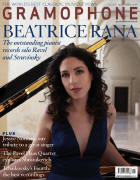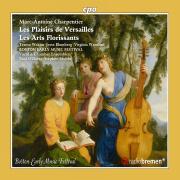Texte paru dans: / Appeared in: |
|
|
Outil de traduction (Très approximatif) |
|
|
Reviewer:
David Vickers
The Bostonians also perform Les plaisirs de Versailles, recorded by Christie over 20 years ago, although there is also a DVD of a Versailles production by Les Folies Françoises (Armide, 2005). Probably created for the royal apartments soon after 1682, perhaps for the amusement of the Dauphin (who was one of Charpentier’s patrons), the divertissement is a witty allegory of an evening’s pleasures at Versailles. A quarrel between the refined Music and the babbling Conversation is mediated by Comus (the god of feasting), who offers the opponents delicious hot chocolate, wine and food, but to little avail. Le Jeu (Games) fares no better with his diversions. Nevertheless, the bickering pair are reconciled amid an outburst of laughter; onlooking ‘Pleasures’ who have been switching sides with each disputant now express gentle satisfaction at the outcome. Charpentier’s manuscript tells us it should last half an hour, so Paul O’Dette and Stephen Stubbs’s pacing is spot-on. Wakim’s La Musique fluctuates between beguiling poeticism and irritation at Warnken’s aristocratic La Conversation, who cannot sit in silence. Blumberg’s Comus is a genteel connoisseur of delicacies, whereas Jason McStoots’s Le Jeu is a playful trickster. Throughout the charming performances of both divertissements, captivating interplay between superb instrumentalists, articulate solo voices and choruses of refined intimacy are de rigueur. |
|




